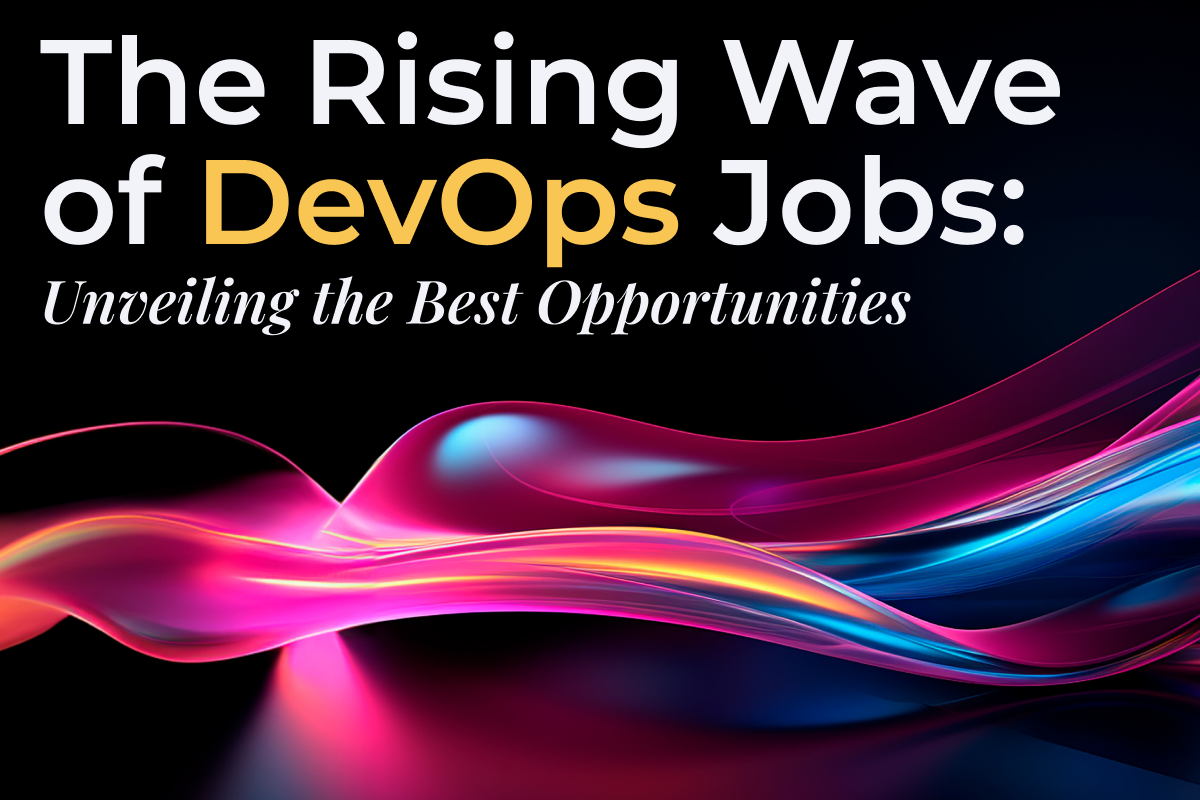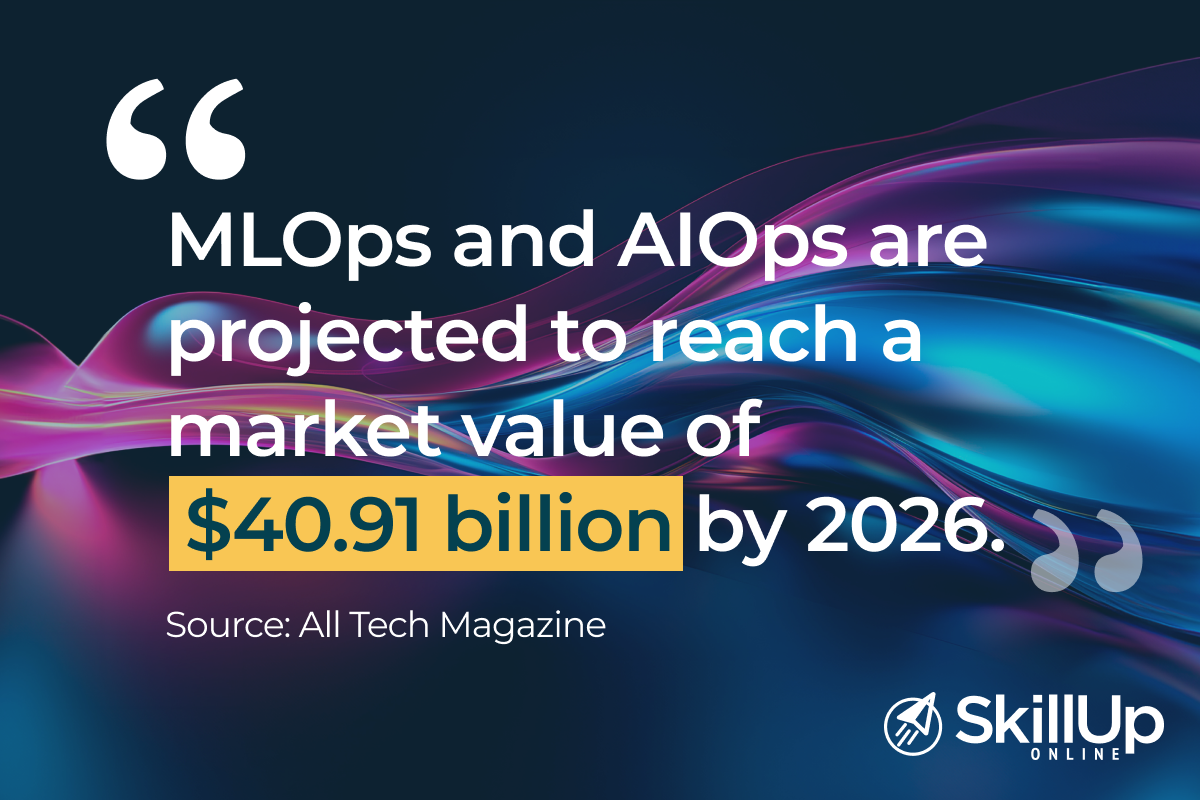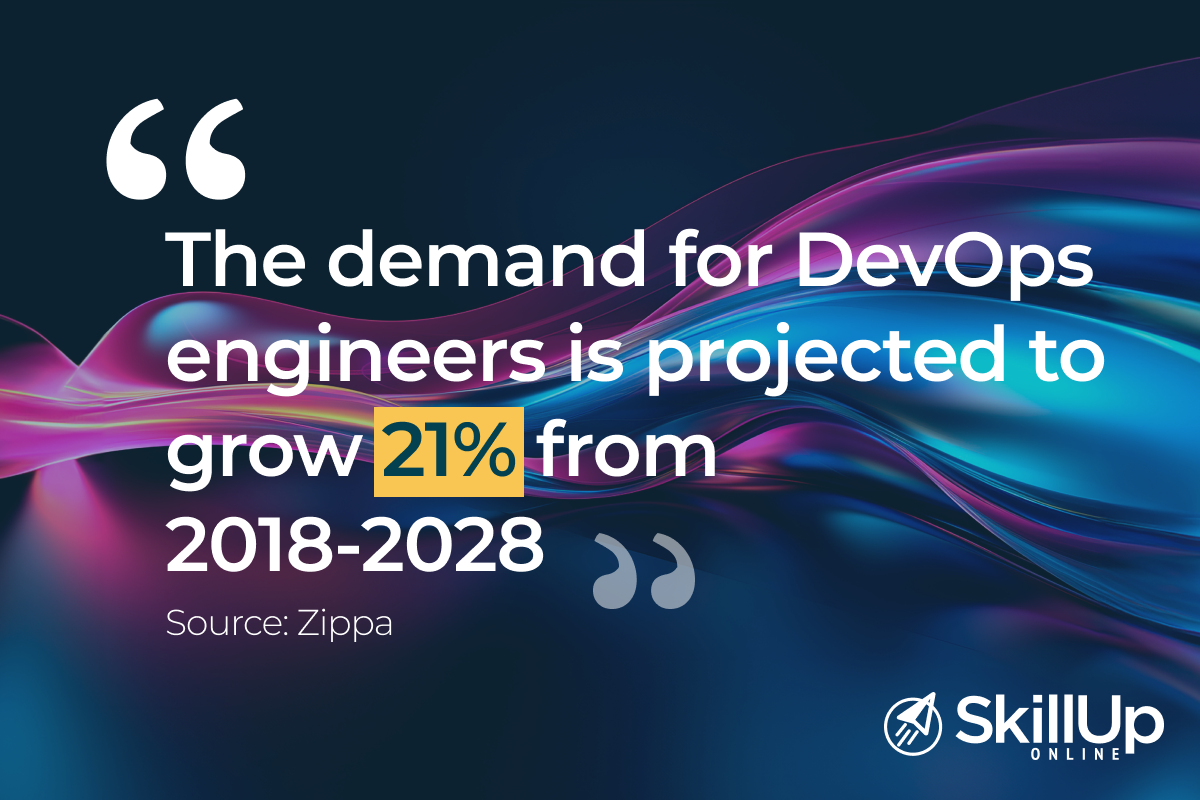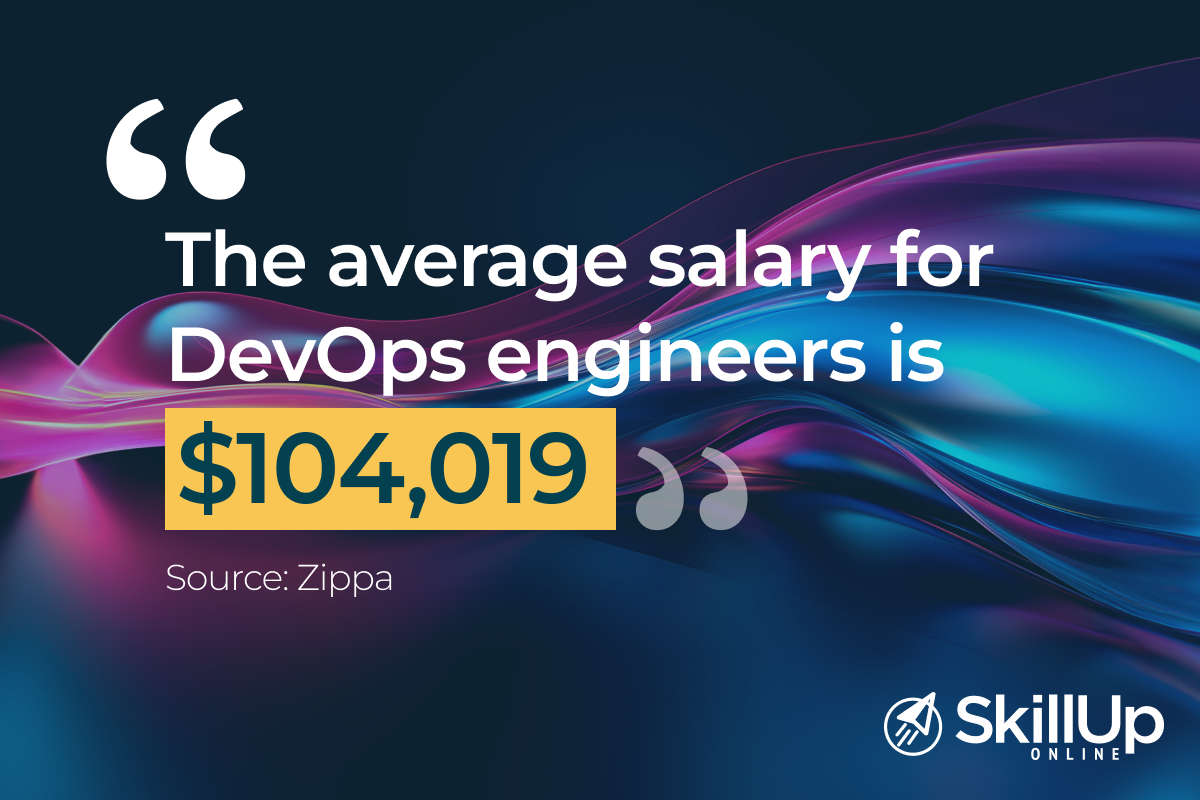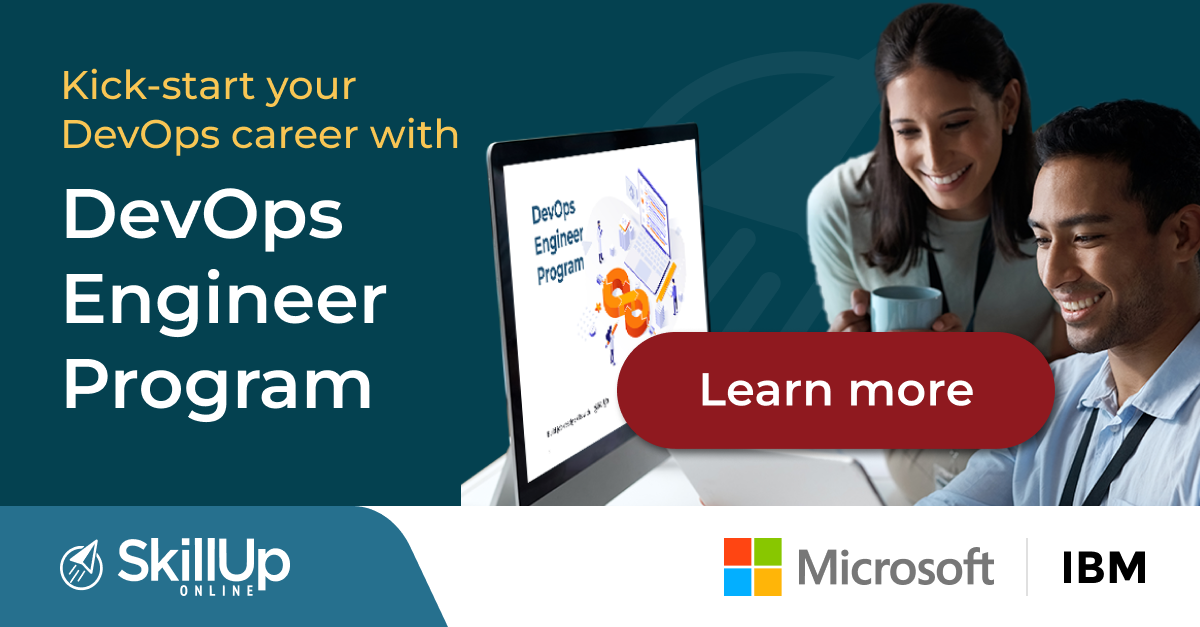DevOps has emerged as a critical catalyst in the tech industry. And for tech professionals exploring career growth opportunities, DevOps offers a path laden with options.
As per Global Market Insights, DevOps is growing at CAGR of 20% & is expected to reach $70 Billion by 2032. This phenomenal rise, fuelled in part due to the increasing adoption of cloud and automation technologies and in part to the increased usage of AI and machine learning, has created a serious demand for skilled DevOps practitioners.
But what is this whole ‘DevOps’ thing?
At its core, DevOps is about enhancing collaboration between software developers and IT operations teams. This convergence accelerates deployment cycles and ensures robust, scalable solutions. So, it’s no surprise that DevOps has become indispensable in an industry where agility and efficiency are paramount. And this means talented professionals with the right skills and experience are highly sought-after for their ability to drive innovation and operational excellence.
Current Trends in DevOps
A continuous evolution towards increased efficiency and automation defines today’s DevOps landscape.
Organizations employing DevOps principles are leveraging cloud services to enhance their deployment strategies. And automation, too, is playing a pivotal role, with tools like Jenkins and Ansible streamlining the CI/CD pipeline to foster a more agile and error-free development process.
Furthermore, the integration of AI and machine learning in DevOps is on the rise, paving the way for smarter, data-driven operational decisions and enhanced predictive capabilities.
Key Trends in DevOps
DevSecOps
DevSecOps (a term derived from combining ‘development’, ‘security’, and ‘operations’) is a software development approach that integrates security practices early in the DevOps lifecycle, rather than as an afterthought. This ensures continuous security testing and collaboration among development, security, and operations teams for more resilient and secure software delivery.
Serverless Computing
The adoption of serverless computing has significantly enhanced the DevOps process, effectively bridging the divide between development and operations by introducing enhanced operability. This approach has enabled the smooth generation of DevOps pipeline code, removing the need for a dedicated host throughout the development, testing, and deployment stages.
Microservice Architecture
Microservices, commonly known as microservice architecture, are widely adopted in the IT sector, aligning with current DevOps trends. This approach effectively decomposes large applications into smaller, more manageable pieces, simplifying development, testing, and deployment. It promotes consistent and frequent software delivery, facilitating the application of DevOps processes and principles to enhance overall product quality.
MLOps and AIOps
MLOps (machine learning operations) refers to the practice of managing the end-to-end machine learning lifecycle. It incorporates collaboration and automation to enhance the development, deployment, and maintenance of machine learning models. AIOps (Artificial Intelligence for IT operations) involves the application of AI and machine learning techniques to optimize and automate various aspects of IT operations, such as monitoring, incident resolution, and system management.
Together, MLOps and AIOps are projected to reach a market value of $40.91 billion by 2026.
Integral for optimizing DevOps operations, these technologies contribute to high-quality and swift releases. AIOps automates IT processes, aiding in the swift identification of operational issues. At the same time, MLOps strengthens machine learning development, facilitating optimized operations and increased productivity.
GitOps
GitOps offers infrastructure control, monitoring, and automation. Rooted in the Kubernetes paradigm, it empowers IT, operation managers, and developers to leverage Git to collect and deploy multiple applications.
GitOps encapsulates key DevOps practices like collaboration, version control, AI, compliance, and CI/CD, applying them to automate infrastructure. And by emphasizing accelerated releases and consistent delivery, businesses enable rapid and efficient software creation, testing, and deployment.
Kubernetes
Kubernetes, commonly abbreviated as K8s, is an open-source platform designed to manage containerized services and workloads that are extensible and portable. It establishes a self-sustaining ecosystem for containers, enabling seamless scaling of resources up or down as developers need.
Growth Demand for DevOps Professionals
The demand for DevOps professionals is witnessing a significant surge across various sectors, marking it as a highly sought-after skill set in the modern job market.
As per Zippa‘s survey in the US, the anticipated job growth rate for DevOps engineers is projected to grow at 21% from 2018 to 2028. However, this survey also suggests there are other strong indicators of the growing demand:
- DevOps engineers’ salaries have seen a 10% increase over the past five years.
- The US currently has 257,025 active job openings for DevOps engineers.
- The average salary for DevOps engineers stands at $104,019.
Therefore, DevOps could be an important area to focus on if you are looking for a trajectory to build your tech career.
In-Demand Skills for DevOps Professionals
While there is a growing demand, to build a successful career in this domain you need to be proficient in at least one of the top in-demand skills. These include:
AWS
With AWS commanding over 33% of the cloud market, there is a significant demand for AWS DevOps engineers in the US.
Reasons to learn AWS:
- Major companies are shifting to cloud services, with AWS leading in market share.
- AWS facilitates streamlined DevOps implementation in organizations, which is prompting the hiring of AWS software engineers.
- The demand for AWS software engineers is high, especially in the US, which is giving talented professionals the opportunity to stand out and make a significant impact by learning about AWS.
Kubernetes
Kubernetes has evolved beyond its origins in large enterprises and is now proving beneficial for smaller organizations. It streamlines DevOps processes, offering efficient management of containerized applications, regardless of the organization’s size. This means that companies are actively seeking Kubernetes expertise, making it a beneficial addition to your skill set.
Reasons to learn Kubernetes:
- Kubernetes facilitates efficient autoscaling, allowing companies to scale based on demand.
- With robust open-source communities, joining Kubernetes communities offers involvement in a thriving cloud ecosystem that keeps you up-to-date easily.
- Kubernetes is infrastructure-agnostic and capable of running on any platform.
- Simplifying software scaling and deployment, Kubernetes provides a user-friendly solution for organizations.
Google Cloud
Google Cloud Platform (GCP) is a globally sought-after cloud platform renowned for its expansive reach and support. Familiarizing yourself with GCP DevOps holds significant advantages.
- GCP DevOps features a comprehensive Security Command Center, which is a centralized hub for Google’s tools that enhances security.
- GCP boasts an extensive ecosystem with default robust log monitoring capabilities.
- Engaging with GCP DevOps provides access to Google’s services, including big data, networking, IoT, machine learning, and storage solutions.
Docker
Docker, a set of PaaS products utilizing OS-level virtualization, stands out as an excellent DevOps solution. Its primary focus is automating application deployment, allowing the simultaneous operation of multiple containers on the same hardware.
Key reasons to familiarize yourself with Docker for DevOps:
- Docker facilitates continuous testing and deployment.
- It ensures seamless portability across environments.
- Docker assures that a feature running in one environment will function consistently in others.
- With built-in service concepts, Docker simplifies load-balancing configuration.
- Docker promotes enhanced collaboration and communication, which is vital for successful DevOps practices.
Azure
Azure, a leading cloud service by Microsoft, stands among the industry’s top providers, presenting a comprehensive DevOps toolchain for software development and deployment. Notable DevOps services within Azure include Azure Boards, Azure Pipelines, Azure Repos, Azure Artifacts, and Azure Test Plans.
Reasons to incorporate Azure into your skills for a DevOps role:
- Azure ensures timely access to new features and updates every three weeks.
- It provides excellent reliability and flexibility, allowing the use of all DevOps services or a tailored selection based on specific requirements.
- Azure DevOps is platform-agnostic, capable of running on any platform or language.
Job Roles in DevOps
As a DevOps professional, your career path offers diverse opportunities. From overseeing software releases to leading entire DevOps projects, or specializing in automation, security, or engineering, the following job roles cater to different aspects of this dynamic field.
Release Manager
As a release manager, your primary role involves meticulously planning and overseeing the entire software lifecycle. This includes coordinating release schedules, managing deployment processes, and ensuring a smooth transition of software updates from development to production environments.
DevOps Lead
As a DevOps lead, you take on a leadership role, overseeing the entire DevOps project. Your responsibilities include strategic planning, team coordination, and ensuring the successful implementation of DevOps practices. You play a crucial role in aligning DevOps objectives with overall business goals.
DevOps Automation Expert
As a DevOps automation expert, your focus is on leveraging automation tools to optimize and streamline development, testing, and deployment processes. You work towards enhancing efficiency, reliability, and repeatability in software delivery by implementing and maintaining automated workflows.
DevOps Security
In the role of DevOps security, your main responsibility is to safeguard the software throughout its development and deployment. This involves integrating security measures into the DevOps pipeline, conducting risk assessments, and implementing strategies to protect against potential threats, ensuring the overall security posture of the software.
DevOps Engineer
As a DevOps engineer, you are at the core of software development and management. Your tasks include configuring and maintaining infrastructure, collaborating with development teams to streamline workflows, and implementing best practices to enhance the software development lifecycle. You play a pivotal role in ensuring the software’s reliability, scalability, and performance.
DevOps is poised to be a game changer for those aspiring to focus on a high-growth domain in today’s tech industry. As more organizations embrace cloud architecture and automation, the role of DevOps in helping plan, build, and release software that runs businesses becomes even more critical.
If you would like to know more about how you can build the necessary DevOps skills and get started, contact our Learner Support Team at [email protected]. They will be more than happy to guide you on your next steps.
SkillUp Online
